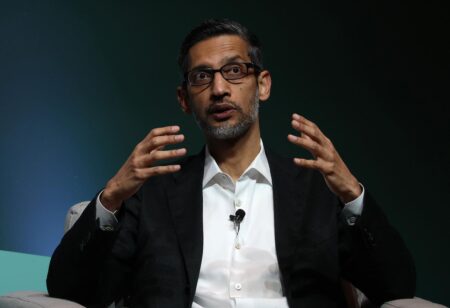Sudhir Gupta is the Founder & Curator of Facticerie.
I didn’t set out to build a business. I didn’t have a business plan. In fact, I had nothing, no connections, no capital, not even the right shoes for my first New York winter. What I did have was an unexpected encounter with a giant perfume bottle in a dusty basement 33 years ago. That moment shaped the philosophy behind everything I’ve done since. As I often say, factice is not a commercial artifact—it is memory cast in glass.
Today, I run the only museum in the world dedicated to these oversized perfume bottles. But the journey here was anything but conventional. My business didn’t begin as a business. It began with obsession. With passion. With preservation.
The Bottle That Started It All
When I arrived in the U.S. to pursue my master’s degree, I had no plans to become an entrepreneur. One day, I found a large, strange-looking bottle buried in a basement. I didn’t know what it was, but I couldn’t stop looking at it. I cleaned it every day, studied it and became attached to it. Eventually, I learned it was a factice—a promotional perfume bottle once used by fragrance houses for display.
Back then, I was earning $200 a week, working seven days. And yet, I paid $2,000 for that bottle. People thought I was crazy. But for me, that object carried both physical and emotional weight. It became the first in what is now a collection consisting of over 3,500 pieces.
Creating A Business To Support A Passion
As my collection grew, so did the demands: I needed more money, more space, more storage. That’s how my business was born—from the necessity of growing my collection. I began sourcing and selling discontinued perfumes. It became a way to fund the passion that had taken over my life.
“I didn’t have a plan,” I’ve told people many times. “I just needed more bottles.”
Eventually, that hustle evolved into Eau de Luxe. But even that wasn’t the goal. Business was always in service of the collection, not the other way around.
From Passion To Preservation
At some point, my obsession with collecting transformed into something deeper: a commitment to preservation. These factices were being discarded everywhere. Department stores trashed them during renovations, fragrance houses no longer made them because of the cost. What once stood as symbols of elegance were now being dumped like garbage.
I remember one instance at Neiman Marcus. They had 50 or 60 gorgeous factices on display. I pleaded with the store manager to let me buy them. I would have paid anything. But when I arrived, they had already been thrown away.
That moment broke something open in me. I knew then that I had to preserve this lost art. These bottles weren’t just marketing tools. They were sculptures. They were history.
I extended that philosophy to everything I touched. When New York’s oldest pharmacy, Lascoff, closed in 2010, I salvaged all the interiors—Tiffany lamps, antique shelving, signage—and used them to build my museum. I call it cultural sustainability. It’s another form of memory, preserved in wood and glass.
Refusing To Compromise
In 2008, during the recession, I opened a luxury store in one of New York’s most prestigious neighborhoods. I invested everything I had into it, and within a year, I was nearly bankrupt. I couldn’t pay rent. I had no income. Everyone told me to sell my collection, declare bankruptcy and move on.
But I couldn’t. I had spent years building something sacred. Selling it would mean erasing everything I stood for.
So instead, I borrowed money from people who believed in me. I made deals with landlords. I fought my way back. And by 2014, I was thriving once again. That year, I made the Inc. 500 list. I stayed on it for five years.
Even when COVID hit and I nearly died in the hospital, I didn’t give up. I persisted because this was never about profit. It was always about purpose.
Follow The Flame
People ask me now: What advice would you give to someone trying to turn their passion into a business?
Here’s what I say: Be patient. Cook your idea slowly. Let the flavor develop.
Too many people want to get rich overnight. But that’s not how anything real is built. You have to believe in what you’re doing, even when no one else does. You have to love it enough to suffer for it. That’s the only way it lasts.
The Power Behind The Journey
There’s one more thing I always talk about—faith. For me, there is a divine power behind everything I’ve done. Everyone works hard. But how many people make it to the top? That gap, that grace—that’s faith. I believe that with all my heart.
You can make the best business plan in the world. But if you don’t believe in yourself, and you don’t believe in something greater than yourself, it won’t sustain you. Not through 16-hour days. Not through recessions. Not through moments when you have nothing to eat but still refuse to give up.
A Museum, A Message, A Legacy
My dream now is for my museum to be recognized as the Louvre or the Smithsonian of the fragrance industry. I want it to live on long after me as a cultural record. Each bottle carries emotion. Each scent carries a memory. I’ve seen visitors cry when they recognize a bottle from their mother’s vanity. That’s when I know I’ve done something meaningful.
If nothing else, I hope my story reminds people, especially immigrants, outsiders and dreamers, that passion matters. Obsession matters. Faith matters.
Because in the end, success is simple. You just need to believe deeply, work relentlessly, and preserve what the world is too quick to throw away. Don’t search for the path. Don’t chase the light. Just keep doing. At the right time, the path will appear, the light will shine and the fruits of your labor will blossom.
Forbes Business Council is the foremost growth and networking organization for business owners and leaders. Do I qualify?
Read the full article here











